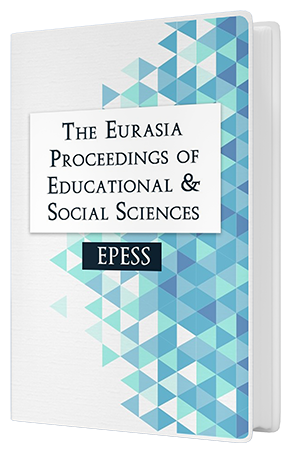THE USE OF SIMPLE EXPERIMENTS IN TEACHING PHYSICS TO THE CHILDREN WITH SPECIAL NEEDS
Keywords:
physics, simple experiments, special need childrenAbstract
This paper deals with inclusive teaching to the children with problems in intellectual development and sand-blind children. In the Republic of Serbia children with special needs are included in regular classrooms in the Primary schools and that is called inclusive teaching. Inclusive teaching strategies are of great importance in order to help children with special needs to attend classes with the children of the same age. Their difficulties in the learning process require special developed curriculum custom to them. In teaching physics the use of simple experiments could be of great help. While conducting simple “Hands-on” experiments, children become active participants in teaching process and also it helps their socialization with their classmates. It is very important to choose adequate simple experiments so child can be included in its conduction, despite of his or her problem. It is necessary to create a friendly atmosphere in the classroom. When sand-blinded child is included in conducting simple experiments, his or her classmates must sometimes describe phenomena and compensate their friend’s inability of observation. Usually classmates will not be able to help their friend with problems in intellectual development to understand how experiment should be conducted. In this case, the teacher will have to provide additional assistance in conducting the experiment and also in the process of drawing conclusions. Teacher must be careful in creating groups for conducting experiments, so regular students will accept their classmates with special needs. In this paper, a suggestion of some adequate simple experiments for teaching physics to the children with special needs is given. Experiments in the fields of motion, pressure, density, heat, electromagnetism and sound are proposed.Downloads
Published
Issue
Section
License
Copyright (c) 2015 The Eurasia Proceedings of Educational and Social Sciences

This work is licensed under a Creative Commons Attribution-NonCommercial-ShareAlike 4.0 International License.
The articles may be used for research, teaching, and private study purposes. Any substantial or systematic reproduction, redistribution, reselling, loan, sub-licensing, systematic supply, or distribution in any form to anyone is expressly forbidden. Authors alone are responsible for the contents of their articles. The journal owns the copyright of the articles. The publisher shall not be liable for any loss, actions, claims, proceedings, demand, or costs or damages whatsoever or howsoever caused arising directly or indirectly in connection with or arising out of the use of the research material. All authors are requested to disclose any actual or potential conflict of interest including any financial, personal or other relationships with other people or organizations regarding the submitted work.




